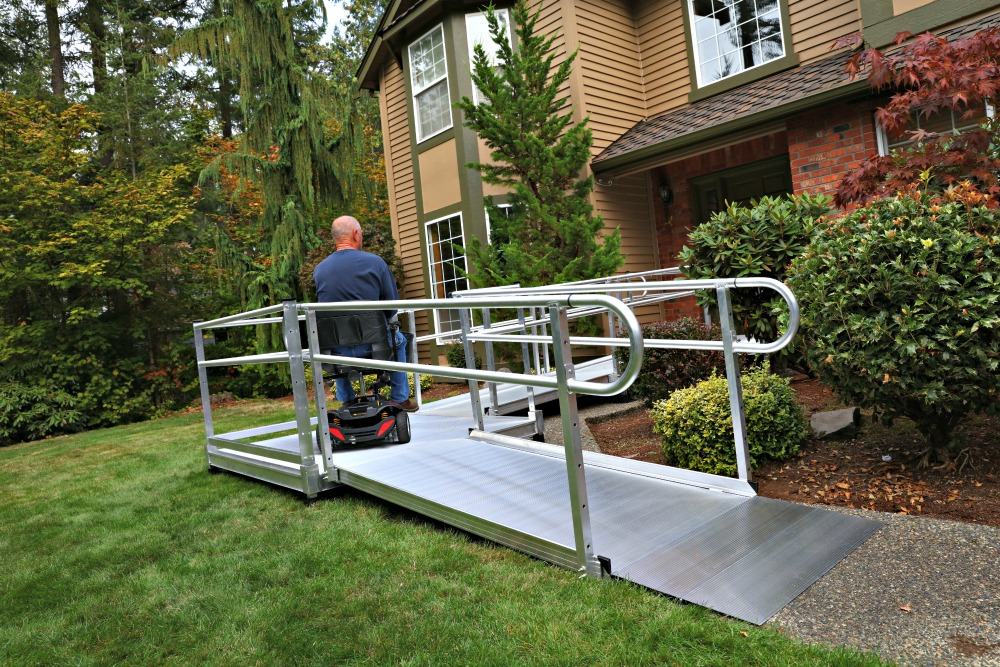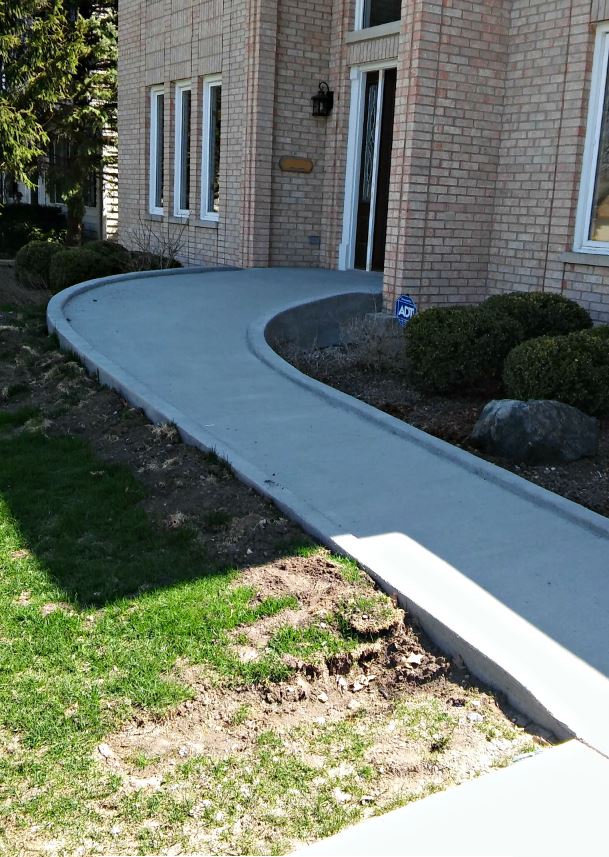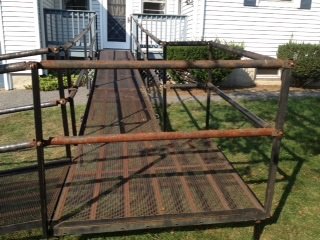What Type of Wheelchair Ramp Material is Best?
Posted on by John Burfield
If you have determined that you need to have a wheelchair ramp installed at your home or business, you’re probably wondering which type of ramp material is best. The four types of materials typically used to construct wheelchair ramps include wood, concrete, steel, and aluminum. Let’s take a closer look at these materials to help you decide which type of wheelchair ramp best suits your needs.
Aluminum Ramps
 Some homeowners will dismiss the idea of a metal ramp because they feel that they look too industrial and won’t match the style of their home. However, aluminum ramps have several characteristics that make them an appealing choice. In addition, most manufacturers now offer powder-coated ramps that can better match the aesthetics of your home or business.
Some homeowners will dismiss the idea of a metal ramp because they feel that they look too industrial and won’t match the style of their home. However, aluminum ramps have several characteristics that make them an appealing choice. In addition, most manufacturers now offer powder-coated ramps that can better match the aesthetics of your home or business.
Factors to consider include:
- Aluminum ramps are quick and easy to install. An aluminum ramp typically costs about $50 per square foot installed and can be installed in a day.
- Aluminum ramps do not require much maintenance and are extremely durable over the long-term.
- Removal of an aluminum ramp is simple and the ramp can be relocated or sold afterward.
- If your needs are temporary, aluminum ramps are typically available to rent.
Wood Ramps

Some homeowners feel that a wooden wheelchair ramp is ideal because they assume it is inexpensive and more aesthetically pleasing than a metal ramp. It is true that a properly built and well-maintained wooden ramp can be very appealing and functional.
However, homeowners should keep these factors in mind:
- Wooden ramps require considerable time, materials, and labor to construct. It will often take up to a week to have a wooden ramp constructed, adding up to high labor costs. Based on the layout, a wooden ramp can cost $100-$200 per linear foot to construct.
- Keeping a wooden ramp safe for users and looking good requires that it be maintained like a wooden deck. Without it, a wooden ramp is prone to rot, splintering, cracking, warping, and fading.
- Wooden ramps can be slick in wet weather, so precautions such as non-slip treads should be considered.
- Removing a wooden ramp requires significant time and labor, which typically costs money, and a wooden ramp can’t be relocated.
Concrete Ramps
 Some people may not consider concrete as an option for a residential wheelchair ramp since it is more often used for commercial and public spaces. Adding a concrete ramp to a structure is easier during initial construction, however, it is possible to add one to an existing home or business if the layout of the property allows for it.
Some people may not consider concrete as an option for a residential wheelchair ramp since it is more often used for commercial and public spaces. Adding a concrete ramp to a structure is easier during initial construction, however, it is possible to add one to an existing home or business if the layout of the property allows for it.
Factors to consider include:
- Concrete ramps require considerable time, labor, and cost to construct. They can cost up to $200 per linear foot.
- Concrete ramps are durable, have high weight capacities, and are low maintenance, but can be prone to cracking over the long-term.
- Removing a concrete ramp can be time-consuming and costly.
Steel Ramps
Modular ramps come in either steel or aluminum. While these materials may seem similar, there are significant differences in their characteristics.
 Factors to consider include:
Factors to consider include:
- Steel is heavy, which can mean a longer and more difficult installation than aluminum.
- Steel ramps are prone to rust (see image) and will require rust-proofing and maintenance if the ramp will be used long-term. This is especially true in wet climates.
- Due to the weight of steel ramps, removal and/or relocation can be difficult.
The Verdict
While all types of ramps have their pros and cons, an aluminum ramp is an appropriate choice for most permanent and temporary applications. They are easy to install, low-maintenance, durable, and easy to remove or relocate. In addition, a qualified aluminum ramp provider is likely available in your area.
